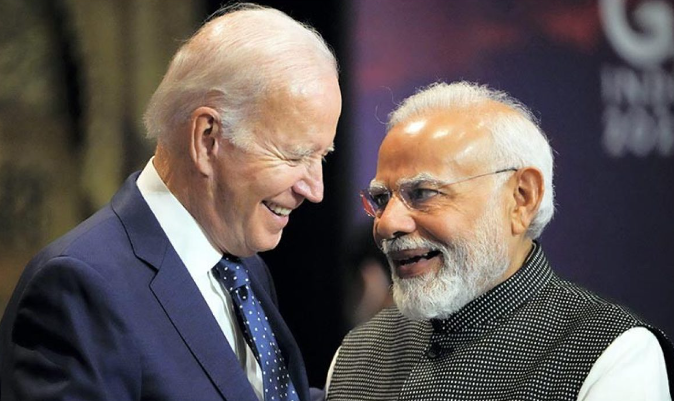New Delhi – In a significant move aimed at improving trade relations, India has formally abolished additional duties imposed on several American products, including chickpeas, lentils, apples, and various nuts. These levies were initially introduced in 2019 in response to the United States’ decision to increase tariffs on specific steel and aluminum items, a move that triggered a retaliatory response from India.
The Indian Ministry of Finance issued an official notification on September 5, announcing the removal of these duties on a variety of US products. This development comes just days before US President Joe Biden’s scheduled visit to India, where he is set to participate in the G20 Summit on September 9-10 and engage in a bilateral meeting with Prime Minister Narendra Modi.
During Prime Minister Modi’s state visit to the United States in June, both nations reached a consensus to terminate six ongoing disputes under the World Trade Organization (WTO) and eliminate retaliatory tariffs on certain American imports.
Under the terms of the agreement, India will be lifting additional duties on chickpeas (10 per cent), lentils (20 per cent), almonds (fresh or dried, with a reduction of Rs 7 per kg), shelled almonds (with a decrease of Rs 20 per kg), walnuts (20 per cent), and fresh apples (20 per cent).
This decision aligns with a previous statement made by Minister of State for Commerce and Industry, Anupriya Patel, in July. In her written reply to the Rajya Sabha, she highlighted the government’s plan to remove retaliatory customs duties on a range of imports, including almonds (fresh or dried, in shell), walnuts, chickpeas, lentils, apples, medical diagnostic reagents, and boric acid.
Importantly, Patel stressed that these adjustments in import duties and the removal of retaliatory tariffs had not caused any losses to India. The United States remains India’s largest trading partner, with bilateral goods trade reaching USD 128.8 billion in 2022-23, a notable increase from the USD 119.5 billion recorded in 2021-22. This move to ease trade tensions is expected to further strengthen economic ties between the two nations as they prepare for high-level diplomatic engagements in the coming days.






